Meister der Hamza-Nâma-Handschrift, 1564-1579
The Event Before Sex
2012 Mellon Symposium, Organized by Farid Azfar
March 30–31, 2012
What exactly is the event before sex? It depends on what we mean by "before." The event before sex could be the event which happens before sex happens, including that which makes sex happen or prevents it from happening. It could be the event which changes the way it happens, or the meaning which becomes attached to it. Hence an event like the French Revolution can change the way in which a society conceives of sexual practice by also changing the stories it tells and the values it holds.
The event before sex could also be the event as placed before sex. The Iranian Revolution of 1979 is an event which pervades reviews of the film A Separation. The film changes how we see sexual relations in post-revolutionary Iran and, by extension, how we see the revolution, regardless of the fact that the film makes no reference to the event. The film then helps us conceive the revolution as an event in the history of sexuality. Once we look at sex through the prism of the event, the prism itself changes, and starts to reflect the scene that it refracts.
To focus upon the event before sex is, then, to privilege the event as a category of analysis – and thus to write an eventful history of sexuality, one that values dynamism, change, and contingency. To place the event before sex is also to view the event through the prism of sex – to allow the sexual legacies of an event, as refracted through its cultural artifacts, to change our vision of what the event was.
This symposium gathers eight scholars who have found the idea of the event to be a useful category in the study of sexuality. The idea is to inspire a discussion amongst those for whom an eventful study of sex disrupts existent disciplinary paradigms of interpretation and perhaps even derails the study of sexuality from the paths that it has comfortably taken. There are four panels, engaging an array of topics from various disciplinary perspectives: the Algerian war, colonialism in India, the early modern court, twentieth-century Germany, and much more.
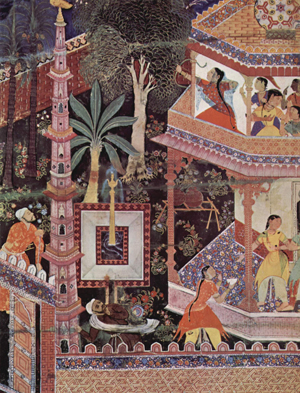
Schedule
All events in Stokes 102 (#15 on map) unless noted otherwise.
Friday, March 29, 2013
9:00 a.m.
Welcome
Breakfast and Introductory Remarks
9:45 a.m.
Empire, Violence & Society
"Exogenous Social Engineering; the United States failure to transform Iraq; 2003-2011"
Toby Dodge, London School of Economics and Political Science
"Turning a blind eye: Gendering Violence, Politics and Society"
Nadje Al-Ali, The School of Oriental and African Studies, University London
12:00 p.m.
Lunch
1:15 p.m.
War Tales
"Writing the Dismembered Nation: Iraqi Narratives of War"
Haytham Bahoora, Colorado University - Boulder
"How the War changed the historiography"
Orit Bashkin, University of Chicago
3:30 p.m.
War of Images
"Command Visualization: The Rise and Fall of the Counterinsurgency"
Nicholas Mirzoeff, New York University
"Remarks on Truth and Knowledge: Using Art to Bear Witness to Torture in Iraq"
Daniel Heyman, Rhode Island School of Design, University of the Arts, Pennsylvania Academy of Fine Arts and Princeton University
5:30 p.m.
Comments and Discussion
Speakers

Robert Beachy
Robert Beachy, Associate Professor of History, Goucher College, is the author of Gay Berlin: Birthplace of a Modern Identity (forthcoming, early 2013). His research focuses on the origins and development of sexual identity in nineteenth- and twentieth-century Germany. His current project, Long Knives, focuses on homosexuality under the Nazi regime. He analyzes the complex evolution of Nazi thought and policies toward homosexuality from open tolerance to persecution. The history of homosexuality under the Nazis illuminates the multi-faceted relationship of homosexuality to right-wing movements in contemporary Western political and social thought. His book on homosexuality in Berlin (forthcoming Alfred A. Knopf), situates the origins of modern male and female homosexual identity in Germany between the 1860s and the Weimar Republic. It suggests that it was in Berlin, rather than in other European and American cities, that contemporary gay and lesbian identity first emerged and flourished.
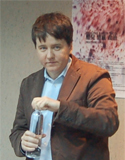
Heather Love
Heather Love is the R. Jean Brownlee Term Chair in Gender and Sexuality Studies at the University of Pennsylvania. She received her Ph.D. from the University of Virginia in English, and her research interests include gender studies and queer theory, the literature and culture of modernity, affect studies, film and visual culture, psychoanalysis, race and ethnicity, sociology and literature, disability studies, and critical theory. She is the author of Feeling Backward: Loss and the Politics of Queer History (Harvard, 2007), the editor of a special issue of GLQ on the scholarship and legacy of Gayle Rubin ("Rethinking Sex"), and the co-editor of a special issue of New Literary History ("Is There Life after Identity Politics?"). She has recent and forthcoming essays on description as method in literary studies and the social sciences, transgender fiction, spinster aesthetics, and comparative social stigma. She is working on a book on the source materials for Erving Goffman's 1963 book, Stigma: On the Management of Spoiled Identity ("The Stigma Archive").
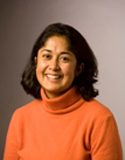
Durba Ghosh
Durba Ghosh is an associate professor in the history department at Cornell University. She is the author of Sex and the Family in Colonial India: the making of empire (2006) and with Dane Kennedy, the co-editor of Decentring Empire: Britain, India and the Transcolonial World (2006). She is currently working on a new project that is tentatively titled, "Gentlemanly Terrorists: political violence and revolutionary protest in interwar Bengal" and focuses on the ways in which violence against the British colonial state became an important, but historically underemphasized, form of protest.
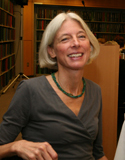
Dagmar Herzog
Dagmar Herzog is Professor of History and the Daniel Rose Faculty Scholar at the Graduate Center, City University of New York. She has published widely in the history of religion in Europe and the U.S., on the Holocaust and its aftermath, and on the histories of gender and sexuality. She recently completed Sexuality in Europe: A Twentieth-Century History (Cambridge University Press 2011). She is also the author of Sex in Crisis: The New Sexual Revolution and the Future of American Politics (Basic 2008), Sex after Fascism: Memory and Morality in Twentieth-Century Germany (Princeton 2005), and Intimacy and Exclusion: Religious Politics in Pre-Revolutionary Baden (Princeton 1996; Transaction 2007). She is the editor and coeditor of six anthologies, including, most recently, Brutality and Desire: War and Sexuality in Europe's Twentieth Century (Palgrave Macmillan 2009); and Lessons and Legacies VII: The Holocaust in International Perspective (Northwestern 2007). She has worked as a columnist for the Berlin-based tageszeitung, was recently appointed a member of the Board of Editors for the American Historical Review, and is currently at work on a new project on the European and American histories of psychoanalysis, trauma, and desire.
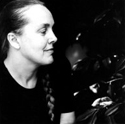
Diane Purkiss
Diane Purkiss is Fellow and Tutor in English at Keble College Oxford, and University Lecturer in English at Oxford University. She has published books on witchcraft, fairies, and women writers, and her most recent publications include a study of gender in Milton and a book on the English civil war. She has just completed a history of food, and is also working on two other projects: a book on Shakespeare and the Supernatural, and a study of Marvell manuscripts in erotic and satirical miscellanies.

Todd Shepard
Todd Shepard is associate professor of history at Johns Hopkins University. His scholarship explores 20th-century France and the French Empire, with a focus on how imperialism intersects with histories of national identity, state institutions, race, and sexuality. His current book project is France, Sex, and Arabs, 1944-1979 (under contract with éd. Payot). His publications include The Invention of Decolonization: The Algerian War and the Remaking of France (2nd rev. ed., 2008) and, most recently, "Something Notably Erotic": Politics, "Arab Men," and Sexual Revolution in Post-Decolonization France, 1962-1974," in the Journal of Modern History (March 2012).
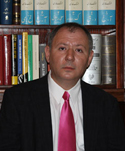
Kemal Silay
Kemal Silay is Professor of Central Eurasian Studies, Ottoman and Modern Turkish Studies Chair, Director of the Turkish Studies Program, and Director of the Turkish Language Flagship Center at Indiana University, Bloomington. He is the author of numerous articles in Turkish and English on Turkish culture, literature, and Islamism. Among his books are Nedim and the Poetics of the Ottoman Court: Medieval Inheritance and the Need for Change (Indiana, 1994); An Anthology of Turkish Literature (Indiana, 1996); and Ahmedi's History of the Kings of the Ottoman Lineage and Their Holy Raids against the Infidels (Harvard, 2004). He is a scholar of international reputation and sought-after expert on many issues regarding Turkey, its language, literature, history, society, and politics.
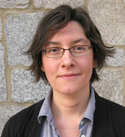
Margot Weiss
Margot Weiss is assistant professor of American studies and anthropology at Wesleyan University. She specializes in the ethnography of contemporary sexual cultures and politics. Her first book, Techniques of Pleasure: BDSM and the Circuits of Sexuality (Duke University Press), is an ethnography of BDSM (kinky) communities in the San Francisco Bay Area. The book explores the links between queer performance, racial and gender politics, late capitalism, and neoliberalism. She is also completing a small comparative project on the queer temporality of BDSM play with national trauma in the United States and Germany. Her current research, Visions of Sexual Justice, is a comparative ethnography of discourses of sexual rights, freedom, and justice among contemporary LGBT/queer activists in the United States and Canada. The research is supported by a Wenner-Gren Post-Ph.D. Research Grant, Osmundsen Initiative Award, and CLAGS Joan Heller-Diane Bernard Senior Fellowship in Lesbian and Gay Studies."
Organizer
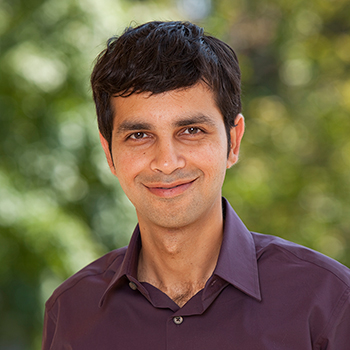
Farid Azfar
Farid Azfar is Mellon Postdoctoral Fellow and Visiting Assistant Professor of History at Haverford College. He received his Ph.D. in History from Brown University in 2009. In 2010-11, he participated in the Hurford Center for Arts and Humanities's Mellon Faculty Seminar "Sex, State and Society in the Early Modern World." He is currently working on his first book project, provisionally entitled Haunted Enlightenment: Persians, Bubbles, Masquerades and the Disordered Bodies-Politic of 1720s London. He has numerous articles in scholarly journals, including a forthcoming piece in The Journal of British Studies entitled "Genealogy of an Execution: The Sodomite, the Bishop, and the Anomaly of 1726." At Haverford, he has taught a range of classes, including "Sex, State and the Law in Early Modern Europe and the Ottoman Empire." He has started work on a new research project, entitled River Worlds: The Indus and the Ganges, 1650-1850.